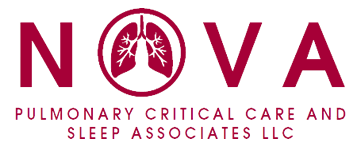Restless Legs Syndrome (RLS), also known as Willis-Ekbom Disease, is a neurological disorder characterized by uncomfortable sensations in the legs and an uncontrollable urge to move them. These sensations typically occur during periods of rest or inactivity, such as when sitting or lying down, and can disrupt sleep and daily activities.
Key features of Restless Legs Syndrome include:
- Sensations: People with RLS often describe the sensations as crawling, creeping, itching, tingling, or burning deep within their legs. These sensations can also affect the arms and other parts of the body in some cases.
- Urge to Move: The uncomfortable sensations in the legs lead to an overwhelming urge to move the legs, which provides temporary relief. Movement, such as walking or stretching, can alleviate the discomfort temporarily, but the sensations often return when the person is at rest again.
- Symptoms at Night: RLS symptoms are often most pronounced during the evening or nighttime, which can interfere with falling asleep and result in fragmented sleep patterns.
- Impact on Sleep: RLS can significantly disrupt sleep, leading to insomnia, daytime fatigue, and impaired daytime functioning. This sleep disturbance can have a profound impact on quality of life and overall well-being.
The exact cause of Restless Legs Syndrome is not fully understood, but it is believed to involve a combination of genetic and environmental factors. Factors that can contribute to or worsen RLS symptoms include iron deficiency, pregnancy, certain medications (such as antipsychotics or antidepressants), and chronic medical conditions like kidney disease or peripheral neuropathy.
Treatment for RLS focuses on managing symptoms and improving sleep quality. This may involve lifestyle modifications such as regular exercise, avoiding caffeine and alcohol, establishing a regular sleep schedule, and practicing relaxation techniques. In cases where symptoms are severe or significantly impact daily life, medications such as dopamine agonists, benzodiazepines, or anticonvulsants may be prescribed to help alleviate symptoms and improve sleep. It’s important for individuals experiencing RLS symptoms to consult a healthcare professional for an accurate diagnosis and appropriate management plan.
Office Locations
Conveniently located near you in Loudoun and Fairfax VA
NOVA Pulmonary – Dulles
24430 Stone Springs Boulevard
Suite 200
Dulles, VA 20166
NOVA Pulmonary – Lansdowne
19415 Deerfield Avenue
Suite 301
Landsdowne, VA 20176
NOVA Pulmonary Critical Care and Sleep Associates is committed to providing excellent care in all aspects of Pulmonary Medicine and Sleep Disorders. With offices located in Lansdowne and Dulles/South Riding, we offer care for the entire Northern Virginia region, serving locations from Chantilly, Fairfax, Centreville, Manassas, Gainesville to Reston, Sterling, Leesburg, Ashburn, Brambleton, Purcellville and more.
Meet the team at NOVA Pulmonary Critical Care and Sleep Associates

Dr. Aditya N Dubey, M.D, F.C.C.P. – Founder
Specialty:
Pulmonary, Critical Care and Sleep Medicine
Board Certified by American Board of Internal Medicine in the Subspecialities of Pulmonary Medicine, Critical Care Medicine and Sleep Medicine. Learn more about Dr. Dubey

Dr. Petra Thomas, M.D.
Specialty:
Pulmonary Medicine
Board Certified by American Board of Internal Medicine in the Subspecialities of Pulmonary Medicine. Learn more about Dr. Thomas

Dr. Arman Murabia, M.D.
Specialty:
Pulmonary, Critical Care and Sleep Medicine
Board Certified by American Board of Internal Medicine in the Subspecialities of Pulmonary Medicine, Critical Care Medicine and Sleep Medicine. Learn more about Dr. Murabia

Rebekah Lee, AGNP-C
Nurse Practitioner. Learn more about Rebekah Lee

Christine Amorosi, AGNP-C
Nurse Practitioner. Learn more about Christine Amorosie
